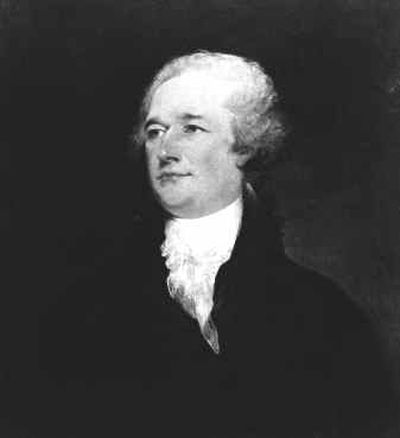Families aim to mend rift after duel

WEEHAWKEN, N.J. – On a bluff across the Hudson River from Manhattan, a vice president of the United States measured off 10 paces, turned and shot an acclaimed former U.S. Treasury secretary.
Neither deficits nor tax cuts nor vice presidential four-letter invective had a whit to do with it.
When Aaron Burr shot his rival, tormentor and sometime friend Alexander Hamilton in a duel exactly 200 years ago today, two men were destroyed. Hamilton’s wound was mortal; he writhed for a day before dying. Burr walked away unscathed but with his reputation dashed for eternity.
Today at 10:30 a.m., the lineal descendants of Hamilton and Burr plan to gather on the Weehawken waterfront and re-enact this most famous of American duels.
Or sort of re-enact it. Douglas Hamilton, an IBM salesman from Ohio and fifth-great-grandson of the treasury secretary, has declined to do anything so tacky as fall to the ground, grasp his side and moan.
He proposes to fire his black-powder dueling pistol and wait for the Burr descendant to do the same. Then the Hamilton descendant will take a gentleman’s knee.
“Most families don’t go out and re-enact the death of their ancestors,” explains Hamilton, who has agreed to don a high hat, coat and hair piece for the occasion. “I have assurances they’ll do it with class.”
Antonio Burr, a forensic psychologist in Manhattan, will take the role of Aaron Burr. “If I can convey a little bit of his presence and his sense of command, I’ll be very pleased,” Burr said. “I fully empathize with Hamilton’s concern, though. We don’t want any gore here.”
If both families are energetic stewards of their ancestors’ legacies, the Burrs are perhaps jauntier. They have been history’s black sheep for two centuries now – this is their first invitation to attend an anniversary of the duel.
The Burrs start at a considerable deficit, given that their great-great-great-great-great-grandfather, while a learned and witty man, also killed a founding father of the Republic. Later, Burr tried to establish his own nation west of the Mississippi, a scheme that led contemporaries and a few historians to label him a traitor. (A jury, however, acquitted Burr.)
“We’re hungrier. We’re the underdog,” explains Stuart Fisk Johnson, president of the Aaron Burr Association and a barrister in the D.C. Superior Court, who will take the role of Aaron’s second in the re-enactment. “But we’re certainly looking forward to dissolving any tensions with the Hamiltons. After 200 years, it’s time to get along.”
Hamilton got much the better of Burr, in death if not in life. Born on the Caribbean island of Nevis to an unmarried Scottish father and a French mother, Hamilton came to this country as a student, served as an aide to Gen. George Washington, signed the Constitution, co-wrote the Federalist Papers and founded the central bank. He was a principal intellectual advocate of a strong federal government – and a man who much feared the tyranny of the democratic majority.
Burr, too, was a man of accomplishment – although not so grand as Hamilton. Burr was a brave soldier, an able political operative and a tough lawyer. He tended toward a more participatory vision of democracy.
Few historians are tougher on Burr than Richard Brookhiser, author of “Alexander Hamilton, American” and curator of an upcoming Hamilton show at the New York Historical Society. “He was a smart, clever man, and he said a number of funny things,” Brookhiser said. “But he was an empty narcissist.”
Perhaps, but Hamilton could be a hot-tempered annoyance. He gloried in the serrated-edged insult. His quarrels were so numerous that he wrote at least six letters challenging men to duels. Hamilton’s eldest son was killed in a duel in 1801.
“It was a period of noble and inspirational words but also of malice and slander,” said Ron Chernow, author of “Alexander Hamilton,” an acclaimed new biography. “Hamilton was an irritant, and there must have been times when Burr dreamed of being rid of him.”
That moment came in the summer of 1804. Hamilton had dined with companions in Albany, and opined that he harbored a “despicable opinion” of Burr. When Burr heard of this, he demanded an apology. Hamilton refused, and Burr challenged him to a duel.
Curiously, Hamilton confided to friends that he had developed moral reservations about dueling and that he intended to shoot wide of Burr. That led to speculation that Hamilton, still distraught at the death of his eldest son, intended to die.
Other partisans have offered hot words on behalf of the treasury secretary. Brookhiser, particularly, is dismissive of Burr descendants’ efforts to achieve historical parity for their man. “You know, it’s tough when your relatives have no principles and no accomplishments,” Brookhiser said.
You might say that all good feuds must come to an end.
“If Alexander Hamilton, with a bullet in his back, could forgive Aaron Burr,” noted Douglas Hamilton, “then I can forgive the Burr family 200 years later.”